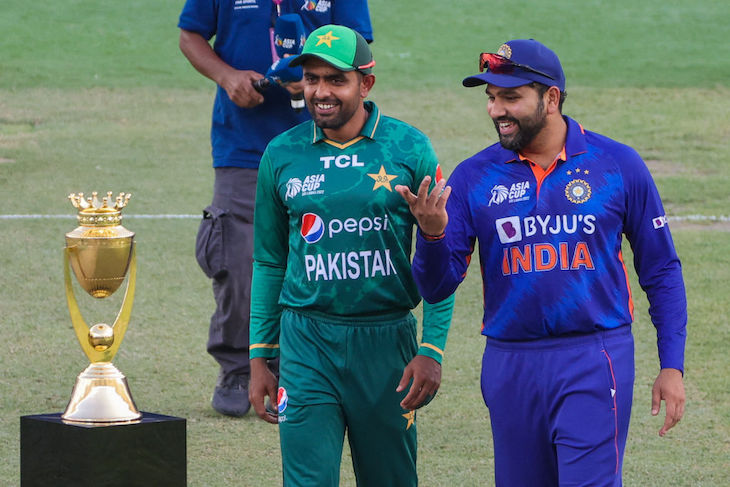An India-Pakistan cricket match is always about much more than just cricket. It is a sporting rivalry and grudge match like no other, a titanic clash in which it is almost impossible to separate sport from politics. That’s why hundreds of millions of fans will be glued to their television screens for this Saturday’s match at the Cricket World Cup tournament in India.
The stadium itself will be packed to the rafters, with more than 130,000 spectators lucky enough to get tickets. Some reports suggest that tickets have been selling for as much as $300,000 (£250,000) on the black market. Security will be tight, with thousands of extra police officers drafted in — and all this for a game in the qualifying rounds of the tournament. Losing for either side, even in these early stages, is simply not an option. Anything and everything else – losing to another team, dropping out of the competition – is more palatable than a defeat in this one match. The stakes are that high in terms of national prestige.
The clash has been given added vim because matches between the two countries have become incredibly rare. The Cricket World Cup is one of the few competitions in which the two countries compete against each other. India even refused to go to Pakistan for the Asia Cup earlier this year, resulting in matches between the two sides being moved to Sri Lanka. On paper, the match is India’s to lose: they have the stronger team and home advantage. In fact, in World Cup tournaments, India have played Pakistan seven times and won every time, making them overwhelming favourites.
The clash has been given added vim because matches between the two countries have become incredibly rare
Arguments and conspiracy theories are never far away when the two nations face each other on the cricket pitch, and the run-up to this match has been no different. Pakistan’s cricket board cried foul after its players faced repeated delays securing Indian visas, with the team only receiving clearance just days before travelling last month. The Pakistanis claim the delays have disrupted the team’s preparations for the tournament. The match is being played at the Narendra Modi stadium, the world’s largest cricket ground, in Ahmedabad. This is Modi’s political heartland, and just a short distance from his birthplace of Vadnagar. There have been dark mutterings on the Pakistani side that the setting is an attempt to intimidate their cricketers. Pakistan will be hoping to use their underdog status as added motivation.
A love of cricket is one of the few things that unites the two countries but political tensions and calculations are never far from the surface. Relations between Pakistan and India have certainly deteriorated during Modi’s nine years in power but the two countries have a history of conflict and disagreement, regardless of which party or politician is in power. There have been three major wars between the two nations since Partition in 1947, and the simmering arguments over the disputed Kashmir region continue to poison any prospect of a thaw in relations any time soon. Elections are due next year in both India and Pakistan, giving an extra political twist to this latest confrontation on the cricket pitch. A victory for either team is bound to be exploited on the campaign trail.
The match also comes at a time when tensions are high because of the increasingly divergent prospects of both nations. India, the world’s most populous nation with 1.4 billion people, is well on the way to becoming an international economic powerhouse, and a significant force on the international stage. This is despite the widespread international criticism of Modi for taking India down an authoritarian and repressive path, including human rights violations, the persecution of religious minorities, especially Muslims, and a clampdown on press freedoms. Pakistan meanwhile remains in deep trouble, mired in political instability, and with an economy that is in tatters. Its talented cricket team offers a rare beacon of hope to its struggling population, which is why so much rests on its performance. Cricket acts a healing balm for both countries — but only if they win. That’s why this match means so much.






Comments